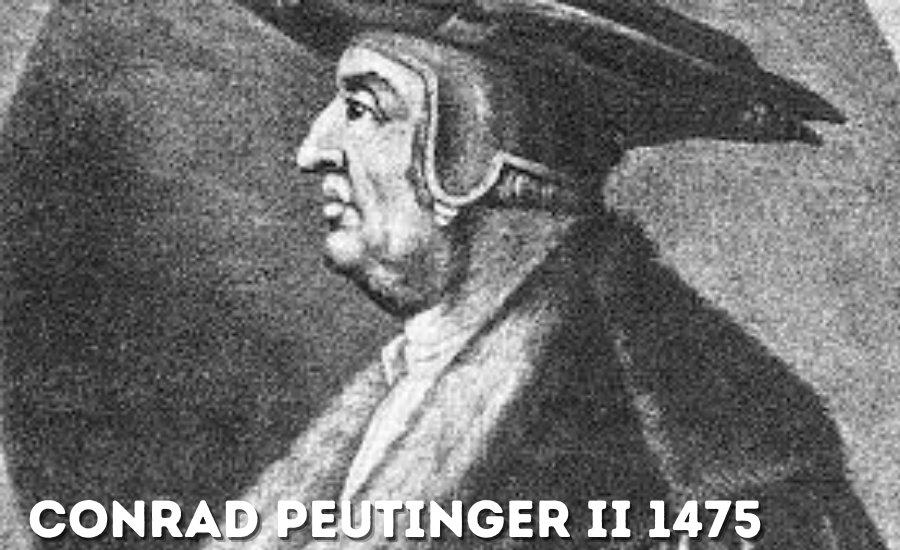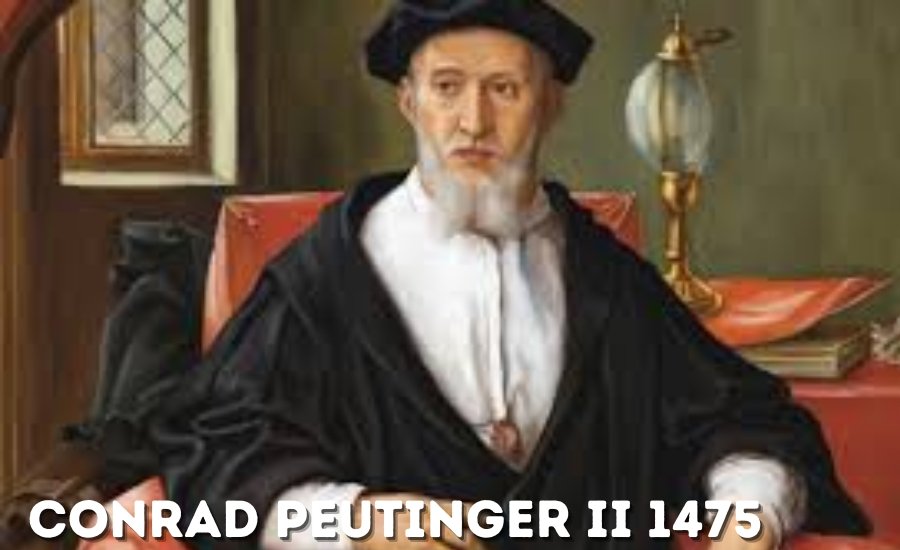Conrad Peutinger II 1475: A Renaissance Scholar’s Impact

Conrad Peutinger II, born in 1475, was an important figure during the Renaissance. He was not just a scholar but also a diplomat and a passionate humanist. His work and ideas helped shape the way we understand history and culture today. This article will take you through his life, the amazing things he achieved, and why he matters to us even now.
Early Life and Education
Birth and Family Background
Conrad Peutinger II 1475 was born in Augsburg, Germany, into a wealthy and influential family. Growing up in a prosperous environment allowed him access to the best education and learning opportunities of his time. His family was deeply involved in the political and intellectual life of Augsburg, which helped spark his interest in scholarship and diplomacy.
Education and Influences
Peutinger studied at prestigious universities, including Padua and Bologna. Here, he learned about law and classical literature, immersing himself in the works of ancient Roman scholars. This education shaped his love for history and laid the groundwork for his future contributions. Influenced by humanist thinkers like Erasmus, he developed a passion for preserving classical texts and promoting intellectual inquiry.
Career as a Diplomat
Role in the Holy Roman Empire
Peutinger’s career as a diplomat was significant. He served as an advisor to Emperor Maximilian I of the Holy Roman Empire, a crucial position that allowed him to influence political decisions and negotiations. His diplomatic work was not only about forming treaties but also about connecting different cultures and fostering exchanges between nations.
Key Diplomatic Missions and Achievements
Throughout his career, Peutinger was involved in many important diplomatic missions. He traveled across Europe to negotiate treaties that strengthened the Holy Roman Empire. His work helped to stabilize relationships between different regions and promote peace during a time of political turmoil. By facilitating discussions on literature, philosophy, and science, he made significant contributions to the intellectual climate of the Renaissance.
Contributions to Scholarship
Preservation of Classical Knowledge
One of Peutinger’s most important achievements was his dedication to preserving classical knowledge. During a time when many ancient texts were lost or forgotten, he worked tirelessly to rescue and document these valuable works. His efforts ensured that the wisdom of ancient scholars continued to inspire future generations.
The Peutinger Table and Its Significance
Perhaps the most famous of his contributions is the Peutinger Table, a detailed map of the Roman world. This ancient map illustrates the vast network of Roman roads, cities, and geographical features. It is not just a representation of physical space; it offers insights into how the Romans understood and organized their empire. The Peutinger Table serves as a crucial resource for historians and geographers, helping us understand ancient infrastructure and the relationships between different regions.
Impact on Renaissance Humanism
Promotion of Humanist Values
As a humanist, Peutinger was deeply committed to the values of learning and intellectual curiosity. He championed the study of classical texts, believing that understanding the past was essential for progress. His support for humanist ideals helped lay the foundation for the cultural revival that characterized the Renaissance.
Influence on Education and Intellectual Pursuits
Peutinger’s impact extended beyond his immediate contributions. By promoting humanist principles, he influenced the way education was approached in his time. His advocacy for classical studies and intellectual inquiry paved the way for future advancements in education, encouraging a generation of scholars to explore new ideas and knowledge.
You May Also Like: David-covinella
Legacy and Influence

Lasting Impact on Modern Historiography
Conrad Peutinger II’s legacy is evident in modern historiography. His preservation of classical texts and the creation of the Peutinger Table have shaped how historians study the past. His work provides a bridge between ancient and modern scholarship, helping researchers connect historical dots that might otherwise remain lost.
Contributions to Cartography and Geography
The Peutinger Table continues to be a vital resource in the field of cartography. Its detailed depiction of roads and cities offers valuable insights into the organization of the Roman Empire. Scholars and geographers still reference it to understand ancient infrastructure and regional connections, showcasing Peutinger’s lasting impact on the discipline.
Conclusion
Conrad Peutinger II (1475) was a remarkable figure whose contributions spanned multiple disciplines. His work as a historian, diplomat, and humanist left an enduring legacy that continues to influence modern scholarship and intellectual pursuits.
By preserving classical knowledge, shaping European politics, and promoting humanist values, Peutinger made significant strides in his time, paving the way for future advancements in various fields. Understanding his life and work offers valuable insights into the Renaissance era and its lasting impact on our world today.
FAQs
Q: What is the Peutinger Table?
A: The Peutinger Table is an ancient Roman map of the world, preserved through the efforts of Conrad Peutinger II. It shows the extent of the Roman Empire, including its roads, cities, and geographic features. It is an important artifact for understanding ancient Roman geography.
Q: How did Conrad Peutinger II contribute to diplomacy?
A: Conrad Peutinger II was a diplomat who played a role in shaping European politics through his negotiations and cultural exchanges. His work went beyond formal diplomacy, encompassing intellectual and cultural discussions that enriched the political and intellectual landscape of his time.
Q: What were Conrad Peutinger II’s main scholarly interests?
A: Conrad Peutinger II was primarily interested in classical texts and historical analysis. His scholarly work focused on preserving and documenting ancient knowledge, contributing to the Renaissance revival of classical learning.
Q: How did Conrad Peutinger II influence modern historiography?
A: Peutinger’s efforts to preserve classical texts and his work on the Peutinger Table have significantly influenced modern historiography. His contributions helped bridge the gap between ancient and modern historical scholarship, providing a foundation for future research.
Q: What is Conrad Peutinger II’s legacy?
A: Conrad Peutinger II’s legacy includes his contributions to the preservation of classical knowledge, his influence on cartography through the Peutinger Table, and his support for humanist values. His work continues to impact the fields of history, geography, and intellectual inquiry.
Get the Latest Updates On ILOUNGE

Specializing in insightful and engaging articles across a range of topics. With a keen eye for detail and a passion for delivering high-quality information, Mary helps readers stay informed with the latest trends and updates


